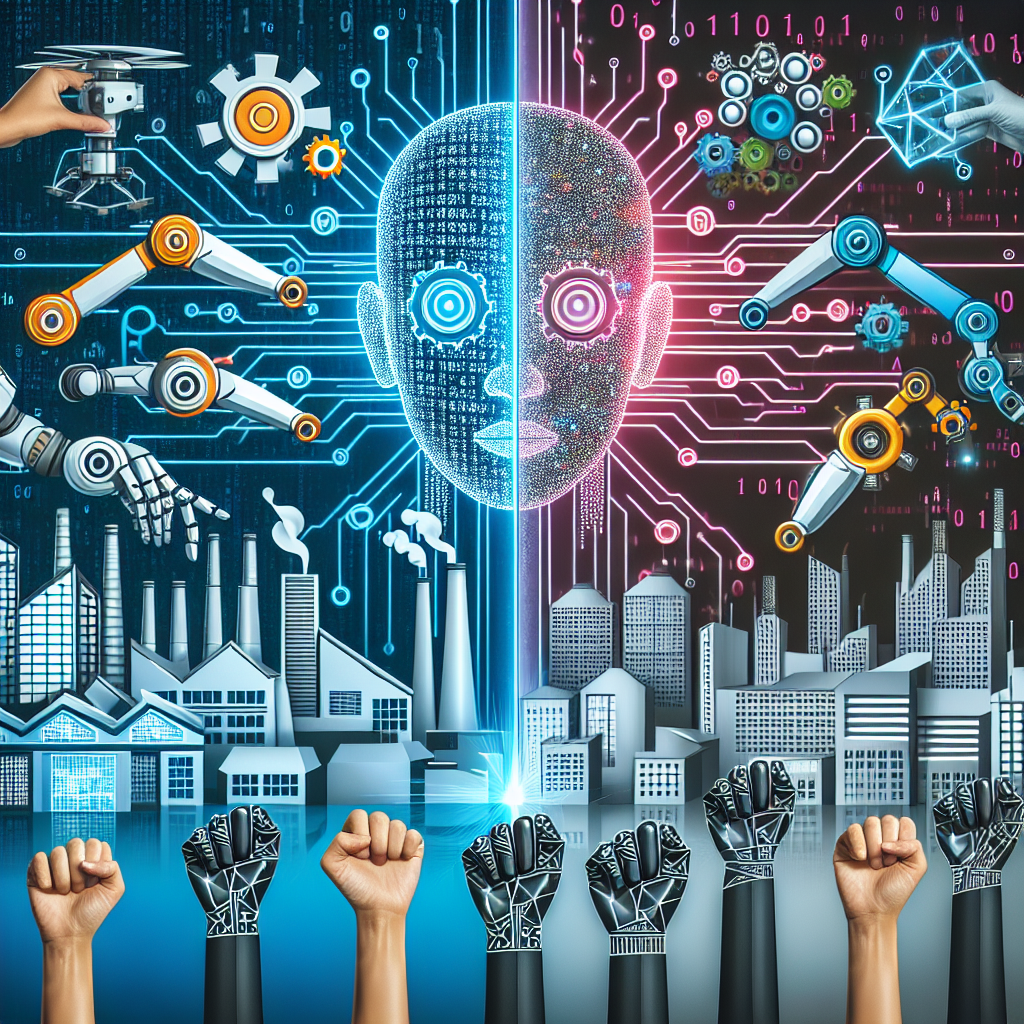The Democratization of AI: How it’s Reshaping Industries
Artificial Intelligence (AI) has become a ubiquitous technology in today’s digital age, with its applications spanning across various industries such as healthcare, finance, retail, and manufacturing. However, the adoption of AI has traditionally been limited to large corporations with the resources and expertise to develop and implement AI solutions. This has created a barrier to entry for smaller companies and startups that do not have the same resources at their disposal.
The democratization of AI refers to the trend of making AI technology more accessible and affordable to a wider range of companies and individuals. This trend is driven by advancements in AI algorithms, cloud computing, and data availability, which have made it easier for businesses of all sizes to leverage AI to improve their operations and drive innovation.
One of the key drivers of the democratization of AI is the availability of pre-built AI tools and platforms that can be easily integrated into existing business processes. These tools, such as Google Cloud AI, Microsoft Azure AI, and Amazon Web Services AI, provide businesses with ready-made AI solutions for tasks such as image recognition, natural language processing, and predictive analytics. This allows companies to quickly and cost-effectively implement AI technology without the need for a team of data scientists and machine learning experts.
Another key factor driving the democratization of AI is the rise of AI marketplaces, where companies can access a wide range of AI models and algorithms developed by third-party vendors. These marketplaces, such as Algorithmia and DataRobot, provide businesses with a platform to discover, deploy, and scale AI solutions without the need for in-house development.
The democratization of AI is reshaping industries in several ways:
1. Increased efficiency and productivity: AI technology can automate repetitive tasks, analyze large datasets, and provide insights that help businesses make better decisions. By democratizing AI, companies can streamline their operations, improve productivity, and gain a competitive edge in their industry.
2. Innovation and new business opportunities: The accessibility of AI technology has opened up new opportunities for companies to develop innovative products and services. Startups and small businesses can now leverage AI to create personalized customer experiences, optimize supply chains, and develop new revenue streams.
3. Improved customer experiences: AI technology can be used to analyze customer data, predict behavior, and deliver personalized recommendations. By democratizing AI, companies can enhance the customer experience, increase customer satisfaction, and drive loyalty.
4. Cost savings: By leveraging pre-built AI tools and platforms, companies can reduce the time and resources required to develop AI solutions from scratch. This can lead to significant cost savings and a faster return on investment.
5. Enhanced decision-making: AI technology can process vast amounts of data and provide actionable insights that help businesses make informed decisions. By democratizing AI, companies can improve decision-making processes, reduce risks, and drive growth.
FAQs
Q: How can small businesses benefit from the democratization of AI?
A: Small businesses can benefit from the democratization of AI by leveraging pre-built AI tools and platforms to automate tasks, improve productivity, and drive innovation. By using AI technology, small businesses can compete with larger companies, enhance customer experiences, and unlock new revenue streams.
Q: What are some examples of AI applications in different industries?
A: AI applications are diverse and can be found in various industries. In healthcare, AI technology is used for medical imaging analysis, drug discovery, and personalized medicine. In finance, AI is used for fraud detection, risk assessment, and algorithmic trading. In retail, AI is used for personalized recommendations, inventory management, and supply chain optimization. In manufacturing, AI is used for predictive maintenance, quality control, and process optimization.
Q: What are the challenges of democratizing AI?
A: Despite the benefits of democratizing AI, there are challenges that companies may face when implementing AI technology. These challenges include data privacy and security concerns, the need for specialized skills and expertise, ethical considerations around AI decision-making, and regulatory compliance issues. Companies must address these challenges to successfully leverage AI technology and realize its full potential.
In conclusion, the democratization of AI is a transformative trend that is reshaping industries and driving innovation across the business landscape. By making AI technology more accessible and affordable, companies of all sizes can leverage AI to improve efficiency, drive growth, and enhance customer experiences. As AI technology continues to evolve and become more mainstream, businesses that embrace the democratization of AI will be well-positioned to thrive in the digital economy.

